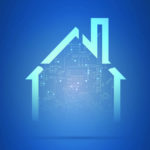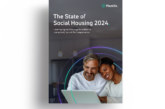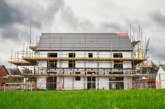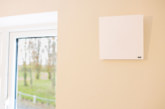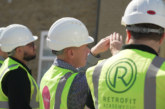 Following a recent survey of housing managers on their perceptions of the Internet of Things in social homes, Andrew Frohock, Applications Engineer M&C at Secure Meters UK, deciphers some of the key themes.
Following a recent survey of housing managers on their perceptions of the Internet of Things in social homes, Andrew Frohock, Applications Engineer M&C at Secure Meters UK, deciphers some of the key themes.
I’m lucky enough to have had a front row seat for the start of the smart home revolution, having been involved with smart domestic heating since its inception mid-decade. What started as smart heating and smart utility metering has now spread across the entire home, allowing almost any aspect or device to be connected, and analysed, via the web.
So where are things up to now in social housing? I joined Secure Meters in late 2019, so I was keen to see what the market is thinking and lend fresh eyes on research conducted by the company earlier that year.
The most interesting aspect for me is the broad spread of connected technologies that landlords are considering. The breadth and variety of technology is a clear indication that we’re now on a path that eventually leads to intelligent homes; homes that learn and make optimised decisions.
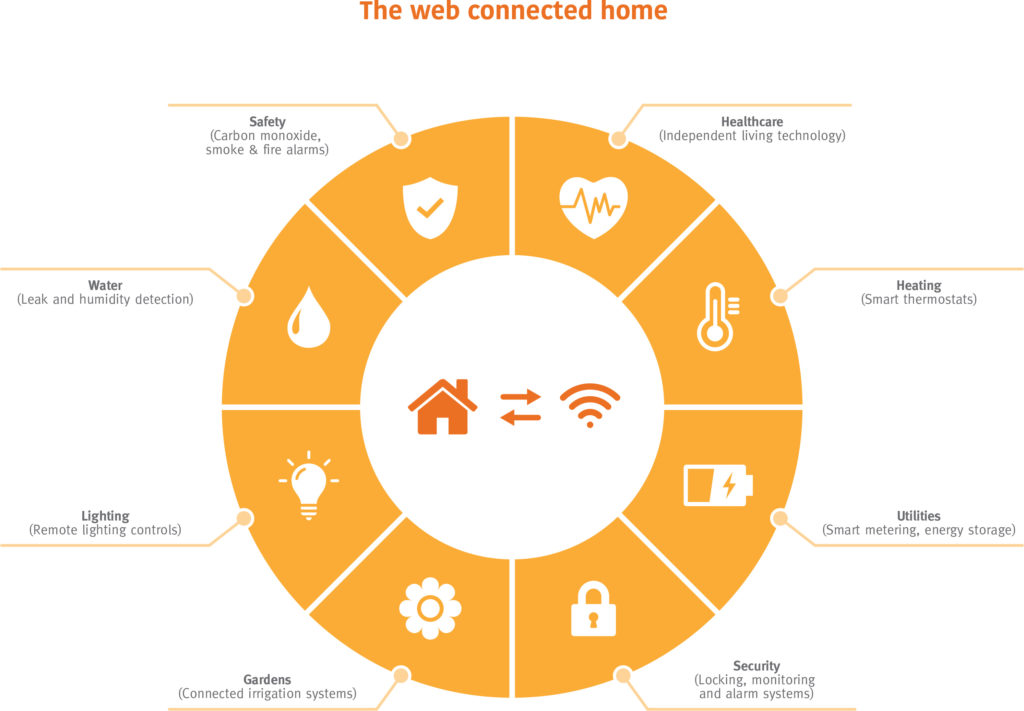 Web connected sensors and AI will eventually automate most aspects of the home environment, occupiers will no longer need to control heat, lighting and energy with their smart phones, the home will learn from the occupier’s behaviour and respond accordingly. The insight provided by these sensors will also play a key role in building management and property maintenance through remote diagnostics and condition monitoring.
Web connected sensors and AI will eventually automate most aspects of the home environment, occupiers will no longer need to control heat, lighting and energy with their smart phones, the home will learn from the occupier’s behaviour and respond accordingly. The insight provided by these sensors will also play a key role in building management and property maintenance through remote diagnostics and condition monitoring.
Installation verses aspiration
One of the most interesting aspects of the survey is the comparison between the smart technologies that social landlords have installed, alongside those solutions they are aspiring to utilise.
As I alluded to, the two most popular technologies to date are both related to heating and utilities, with over a third of respondents having fitted smart heat controls and smart metering devices.
Smart heating systems also score highest in technologies being considered. This is most likely because heat and electricity are domestic essentials, so it makes sense to start with something that every home uses and needs, particularly as 2.53 million (around 10%), of households are still classified fuel poor by the UK government.
Zero carbon futures
Smart metering and heat controls will also be essential in moving towards a zero-carbon future, as we shift away from individual gas boilers and traditional grid connections, to heat pumps, district heat networks, communal heating projects and smart grids.
New smart grid technologies will require grid operators and utilities to interact with individual homes, where controls and appliances respond to signals from your energy provider. These will minimise energy use at times when the grid is under stress at peak demand, or even shift some of their power use to times when power is available at a lower cost.
Smart meters will act as the communication interface between the home and the grid, while home energy management systems will map energy use across various outputs.
Intelligent homes will also regulate the outward flow of electricity from future home storage systems.
Home health tech
Scoring relatively low in both categories was smart home healthcare, but in light of the current Covid-19 crisis, I expect to see a leap in demand for these solutions, as the challenge of monitoring millions of vulnerable, isolated people will accelerate the need for independent living technology.
The impact of the Coronavirus, combined with the demographics of an aging population, and the pressure that places on our health and social care services, should make innovation in this area a priority for local authorities and housing providers.
Technology has a huge role to play in improving the quality of life in older age, and Secure Meters has decided to make a big investment in this area, and recently launched Beanbag Care, a suite of new products that foster independent living.
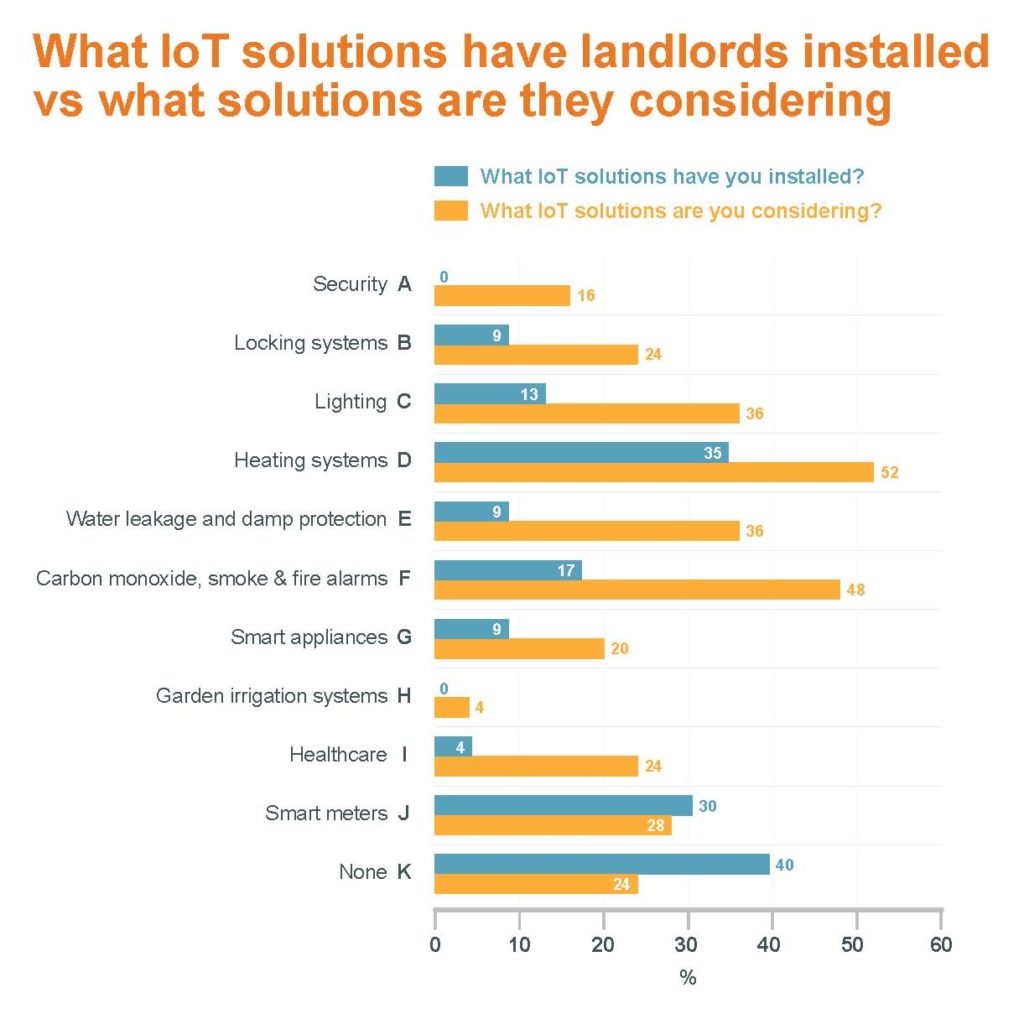 IoT strategies
IoT strategies
Although 60% of the social landlords surveyed claim to be taking a strategic approach to smart home technologies, it is likely that most are using them to tackle specific challenges, such as mould growth and fuel poverty (which may be strategic imperatives in their own right).
That said, there can be little doubt that social landlords are starting to comprehend the fuller strategic value of IoT and smart home tech.
The majority now also get that IoT and connected solutions have a strategic role to play in improving organisational efficiency and customer experience, even if they are yet to fully realise the full capability of the intelligent home.
In my opinion this doesn’t matter, what’s more important is that social landlords are making good decisions by trialling, experiencing and comparing a variety of rapidly evolving technologies: in short: learning what works as they go.
The full Internet of Things & Smart Heat Controls in Social Housing 2020 report is available to view here https://www.yumpu.com/en/document/read/62957328/the-internet-of-things-smart-heat-controls-in-social-housing.
Andrew Frohock is the Applications Engineer – M&C at Secure Meters UK Ltd, exclusive suppliers of Beanbag Heat smart heat controls.
Header image ©kras99/AdobeStock.

